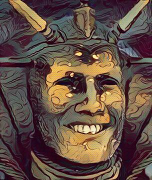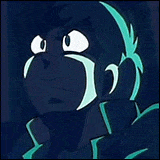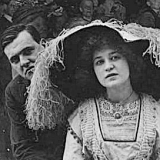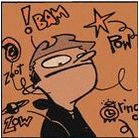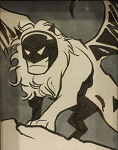|
The Outlier: The Life and Presidency of Jimmy Carter by Kai Bird. Excellent read on Carter, I learned a ton. Highly recommended. The Black Count: Glory, Revolution, Betrayal, and the Real Count of Monte Cristo by Tom Reiss. Also great. One Day: The Extraordinary Story of an Ordinary 24 Hours in America by Gene Weingarten. Interesting look at events that happened in one random 24 hour period. Great read. Cheated: The Inside Story of a Scandal That Shocked America and Changed Baseball Forever by Andy Martino. Good read for baseball fans, I like that he stuck to the provable facts and didnít spend time on rumors. The Stench of Honolulu: A Tropical Adventure by Jack Handey. Listened to the audiobook, silly but fun. The Indifferent Stars Above: The Harrowing Saga of a Donner Party Bride by Daniel James Brown. It was a bad time for the settlers. I didnít know how cursed that wagon was, they were already killing each other long before reaching the pass.
|
|
|
|

|
| # ? May 15, 2024 23:41 |
|
Read a few books about economics recently. Manias, Panics, and Crashes (First Edition) by Charles P. Kindleberger An old but still relevant treatise on speculation, bubbles, and crises. Talks a lot about older financial crises which aren't very well known these days; but aside from the obscure examples, very accessible. Manias, Panics, and Crashes (Seventh Edition) by Charles P. Kindleberger and Robert Z. Aliber The modern edition, by contrast, is a total mess. It has been updated so many times, new text crammed in amidst the old, that it has lost all sense of organization and tonal cohesiveness. Would not recommend. This Time is Different by Carmen M. Reinhart and Kenneth S. Rogoff Also focuses on financial crises, but much denser and more technical than than Manias, Panics, and Crashes. As a layman, I found it very dry and hard to follow. Not a good casual read.
|
|
|
|
I just finished The Galaxy And The Ground Within by Becky Chambers, which is the fourth and final in the series by the author that I've previously mentioned. It's a delightful science-fiction slice of life about some people coming together as a result of unforeseen consequences and how they deal with that. The setting reminds me a bit of The Draco Tavern by Larry Niven, in the best way possible. It does a pretty good job of being part of the genre that's sometimes known as humanist science fiction where there's not a whole lot of technobabble, it's more about people who're dealing with things in a science fiction setting than about the science in science fiction itself, if that makes sense.
|
|
|
|
|
Finished Piranesi by Susanna Clarke, excellent read. Finished it in 3 sittings, really enjoyed it as a high concept yet a relatable allegory. I was a bit disappointed it was as short as it was, but honestly I am not sure what you can do without having it stretch too thin. I want to give her other book (Jonathan Strange and Mr Norrell) understanding it is a very different novel. I feel like this is a solid recommendation for anybody looking for a quicker read over the holidays.
|
|
|
|
Lockback posted:Finished Piranesi by Susanna Clarke, excellent read. Finished it in 3 sittings, really enjoyed it as a high concept yet a relatable allegory. I was a bit disappointed it was as short as it was, but honestly I am not sure what you can do without having it stretch too thin. I want to give her other book (Jonathan Strange and Mr Norrell) understanding it is a very different novel. I agree completely. I was definitely expecting something longer, but it was just about the perfect length for the story it told.
|
|
|
|
Fiction/Fantasy: Just finished the Age of Madness trilogy by Joe Abercrombie. He definitely knows how to write an entertaining, grimdark fantasy novel; I do think that his original First Law trilogy was probably a bit better. I felt that the First Law books were a bit more compelling, and the characters were more nuanced. That might be partially due to the "workers' revolution" plotline feeling a little charged these days, as well as me constantly second-guessing whether Abercrombie is actually a monarchist or not. Probably overthinking things. Nonfiction: We the Corporations by Adam Winkler, which outlines how major SCOTUS decisions, among other structural tenets of the US, have allowed corporations to have such broad freedoms. I'm partway through He Was Our Man in Washington by Owen Symes, which is a left-wing critique of the Obama administration. It's... Dense. It definitely reads like an academic text, but Symes sites all of his sources.
|
|
|
|
The Immeasurable Corpse of Nature by Christopher Slatsky. This is a collection of horror stories in the style of Thomas Ligotti, where a creeping existential dread dominates horror on a cosmic level. Yet, its also intimate as the horror is as much internal as external, as people face loss, be it a child or their own mental faculties due to progressive dementia, or grief guilt or unresolved trauma caused by family or profession. Really horror is at its best when it deals with the human, and this does it.
|
|
|
|
|
Just wrapped up Termination Shock by Neal Stephenson. It was an exceptionally Neal Stephenson book, by which I mean it is absolutely chock full of fun ideas, fascinating details, scientific/engineering exposition and a plotline that is at first confused and then just kind of ends. If you've read a Neal Stephenson book, especially any of his non-Zodiac modern day-ish novels (Reamde, for example) you'll have a solid idea of what you're getting into, though this one feels even more like a grab bag of novelties zip-tied together than usual. The majority of the characters don't develop in any meaningful way, and most don't even actually do anything - mostly things just kind of happen to them or around them. In all, glad I read it and had a fun time, but not a particularly great novel.
|
|
|
|
The Manual of Detection by Jedediah Berry. It's a fun little Noir detective novel that twists itself into a pyschonaut caper. Charles Unwin (A little on the nose with the last name, Jed) is a clerk in a detective agency known simply as The Agency in an unnamed city. His job is to clean up and finalize reports for his assigned detective, Travis Sivart, the Agency's star. That is until Sivart goes missing and Unwin is thrust into the role of detective. Not only is Sivart missing but Sivart's handler turns up dead and Unwin is the prime suspect. Unwin must solve the caper while keeping ahead of both Agency detectives and an Underworld run by a crime boss so cunning he once stole a whole day. One of the fun things is that there is a book-within-the-book as Unwin is armed with a copy of the Manual of Detection as published by The Agency for its operatives. It has the same number of chapters as the novel. At one point a character tells Unwin that he should turn to page 96 for some good advice. Sure enough, when you turn to page 96 there is an excerpt from the Manual. Some light, clever fun.
|
|
|
|
Sinatrapod posted:If you've read a Neal Stephenson book, especially any of his non-Zodiac modern day-ish novels (Reamde, for example) you'll have a solid idea of what you're getting into, though this one feels even more like a grab bag of novelties zip-tied together than usual. Is there a 200-page slog of a gun battle toward the end?
|
|
|
|
Armauk posted:Is there a 200-page slog of a gun battle toward the end? Hehhhhhhhh Well it's not 200 pages anyway! It is perhaps the worst Stephenson gun battle of all time though.
|
|
|
|
rich thick and creamy posted:The Manual of Detection by Jedediah Berry. It's a fun little Noir detective novel that twists itself into a pyschonaut caper. Charles Unwin (A little on the nose with the last name, Jed) is a clerk in a detective agency known simply as The Agency in an unnamed city. His job is to clean up and finalize reports for his assigned detective, Travis Sivart, the Agency's star. That is until Sivart goes missing and Unwin is thrust into the role of detective. Not only is Sivart missing but Sivart's handler turns up dead and Unwin is the prime suspect. Unwin must solve the caper while keeping ahead of both Agency detectives and an Underworld run by a crime boss so cunning he once stole a whole day. This sounds like Dirk Gently's Holistic Detective Agency but slightly better maybe? Has anybody read both of these books and can make the direct comparison?
|
|
|
|
Mr. Nemo posted:Do you have a recommended physician edition? The main difficulty with the verse translations is identifying the characters. Unlike in Waldman's version, where all of the characters maintain consistent names, each one has half a dozen different names and descriptors in the verse translations. It facilitates the translator's ability to rhyme, but it does make it hard to tell who's who. I remember the first unsuccessful time I tried to read the Rose version, I simply got bogged down in the first siege of Paris scene, not having the slightest clue anymore exactly who was doing exactly what. Orlando Furioso is something of a sequel to Matteo Maria Boiardo's Orlando Innamorato. I've never read that, but I'm given to understand that it takes itself very seriously whereas Furioso never does -- its tongue is planted firmly in its cheek at all times. Ortho fucked around with this message at 08:42 on Dec 2, 2021 |
|
|
|
The Long Ships by Frans G. Bengtsson Great adventure book about viking and his voyages. Sags a bit in the middle but is otherwise very gripping. Very funny too. Seems like the kind of book that could be easily be adapted into a TV show, it's a shame scandinavian tv has preffered crime shows.
|
|
|
|
Vita Nostra, by Marina Dyachenko and Sergey Dyachenko, translated by Julia Meitov Hersey A teenager, Sasha, is recruited to do strange and awkward tasks, and then she goes to a metaphysical college where she is taught the secrets of herself and the world. It's hard not to compare this to Harry Potter, so I'll say that it's like Harry Potter meets Steppenwolf. The goal of the school isn't to teach kids to do magic, it's to teach kids what they really are. Reading Vita Nostra is reading 400 pages of a teenage girl being mentally torn apart and reconstructed. I don't want to spoil too much, but I want to talk about one small aspect. In this college there are tests that the students are ferociously studying for, under threats. But Vita Nostra is clear that Sasha is exceptional at her studies The driving force of the novel then isn't if she will pass, it's what it will cost her, and what she will become next. There is no enemy to conquer and no great spell to cast to prove herself. It's just her fighting her own will. I just swept through this book in a few days, and it is already on my shelf of favorites. I'm off to read some Gnosticism now.
|
|
|
|
Some books Iíve read recently and been meaning to post; The Paradox of American Unionism: Why Americans Like Unions More Than Canadians Do, But Join Much Less by Seymour Martin Lipset and Noah M. Meltz Ė a 2001 book that combines historical analysis as well as the results of a survey the authors sent out, it examines the differences between American and Canadians towards unions, in terms of both membership as well as attitudes towards unions. As the title suggests, while Canadian union membership is greater than that in the United States, Canadians are less likely to approve of unions compared to Americans. The authors go over several reasons for this but a lot of it has to with the fact the since unions in Canada are stronger they are seen as part of the establishment, whereas unions in the US are seen as the underdogs (Iím paraphrasing here greatly, itís been a few months since I actually read the book). They also go into the differences of the political cultural in both countries and point the greater emphasis on individualism in the US (on both the left and right) that leads to lower union membership. Based on a True Story: A Memoir by Norm Macdonald. A heavy fictionalized account of Norm Macdonaldís life, it takes the form of sort of book within a book, with Norm and sidekick, Adam Eget, trying to win a million dollars in the casinos of Las Vegas and Atlantic City while Normís ghostwriter slowly goes crazy having to write his biography. The broad outlines of the book are probably true, Norm grew up in rural Canada, then went to NYC to work on SNL, but the details are clearly fictional. Iím pretty sure Norm didnít live next to polar bears at the Zoo when he first lived in New York, or helped fulfill a dying childís wish to go club a seal in Canada, or that when he first met Chris Farley, Farley was shoving cherry tomatoes up his rear end trying to impersonate a salad (well, maybe not that last one). Finally I read Maigret Afraid and Pietr the Latvian by Georges Simenon. Iíd finished up most of the Hercule Poirot novels and was looking for another detective series and was recommended these. Reading both of them I kept feeling like I was missing something. Maybe they lose something in the translation to English or maybe itís just a different style of mystery than what I am used to. Iíll probably come back to them again latter for another try.
|
|
|
|
The Bride of a Moment (Carolyn Wells, 1916) Just after the preacher has declared Ethel and Bingham to be married, Ethel is shot through the temple and crumples dead to the floor. Itís well known that Bingham didnít love Ethel ó he loves Eileen ó but his fatherís will demands he be married before he turns thirty if he wants to inherit, which is only a week away, and Ethel refused to release him. The DA and police detective want to pin the crime on Bingham, as heís the only one with any apparent motive. Farrish, who had been Ethelís lawyer, is also gunning for Bingham in a backhanded way ó pretending he wants to protect him, and in doing so, making him look incredibly guilty. Private detective Alan Ford investigates. Well, Farrish was behaving odd enough from the start to rouse my suspicions. Before her death, Ethel had been receiving messages coded in sheet music. Farrish is in the choir. Ford very quickly decoded all the messages except the one Ethel received the day of the ceremony, which only yielded gibberish. Farrish confesses to substituting the last message for fear it too conclusively implicated Bingham. His forged message is coincidentally in exactly the same handwriting as all the others. My suspicions were confirmed at that point, but thereís more. Farrish was in the choir at the wedding and rested his sheet music on his hand. When that sheet music is examined, it shows powder marks from an automatic pistol and Farrishís fingerprints all over it. Iím not sure what else is necessary ó a confession from Farrishís own lips? Farrish confesses to Eileen after he thinks heís eloped with her, with Ford and the DA listening in on the bugged room. While I had no doubt of his guilt, the motive eluded me and kind of still does. Farrish was a card sharper, evidently, and Ethel knew. He didnít want her to marry Bingham lest she reveal his secret. Why she couldnít reveal it even if she didnít marry him, donít ask me. I strongly suspect the story was written first and that the motive was an afterthought, because it doesnít make the slightest sense. Wells had something of a tendency to do that, like in The Man Who Fell Through the Earth (1919), where the trick of the mystery was so plainly devised first and the details filled in to support it until Wells found herself written into a corner with no way out. I do like Carolyn Wells, and pre-WWII mysteries in general, but her output is so incredibly uneven. This is a middle of the road Wells novel -- not good like The Furthest Fury (1924) or bad like Eyes in the Wall (1934). Don't much care for Alan Ford as the detective, but thankfully she only wrote two novels with him. Fleming Stone for me, but my favorite Wells novel, The Luminous Face (1921), is a Penny Wise and Zizi book. I'm coming down to the wire. I've read most of the 82 mysteries she wrote between 1909 and 1942. Aside from the one story she wrote for magazine publication, I've got copies of all of them. The earlier ones are better written. I can't fault the writing of The Bride of a Moment at all. She would get progressively sloppier as time went on and reliant on padding to bring her stories up to novel length.
|
|
|
|
Just finished The Three Body Problem. I really enjoyed it, especially the very different voice a Chinese perspective on writing brings.
|
|
|
|
|
Burr by Gore Vidal. I enjoyed it, but I mostly enjoyed it as a work of history rather than as a novel. At the end of my copy there's an afterword from Vidal where he explains why he wrote a historical novel instead of a history book, and he also says a little about how his own views diverge from Burr's (Vidal likes Jefferson more, and Jackson less than Burr did) which I think would have improved my reading experience if I had known that when I started because I wasn't sure where Burr ended and Vidal began.
|
|
|
|
Bilirubin posted:Just finished The Three Body Problem. I really enjoyed it, especially the very different voice a Chinese perspective on writing brings. Keep going in the series. The over-arching plot in Dark Forest and Death's End gets mind-bendingly crazy.
|
|
|
Armauk posted:Keep going in the series. The over-arching plot in Dark Forest and Death's End gets mind-bendingly crazy. Thanks I plan on it
|
|
|
|
|
Dark Forest is also up there with Diaspora for extremely sad speculative fiction for me. I just finished Frankenstein and Engine Summer (as recommended by climate change thread) Frankenstein was a legit page-turner for me. I loved the framing device and the excellent depiction of a great existential mancold. Obviously important and influential and very much in conversation with its time. Engine Summer was also really incredible. Excellent critique of 20th century culture and highly imaginative. I really recommend it for the way the narrative shifts as the protagonist describes his journey and the things he encounters.
|
|
|
|
|
In an effort to cut out screens before bed I've been getting back into reading physical books at that time instead so here's Blood, Sweat, and Pixels by Jason Schreier. It was boring and felt like a fluff piece even though I'm the target audience of video game nerd and someone who likes behind the scenes how the sausage is made kinda stuff. The book covers the troubled and difficult development of 10 popular games around the year of 2017 when it was written, those games being Diablo 3, Destiny, The Witcher 3, Halo Wars, Uncharted 4, Shovel Knight, Star Wars 1313, Pillars of Eternity, Dragon Age: Inquisition, and Stardew Valley. Each is a chapter and it's a straightforward telling of the events leading up to the release of these games with a few exceptions. Diablo 3 and Destiny are here for the release disasters they were and how they were fixed after the fact and Star Wars 1313 is here as a game that was pretty far along before it died with LucasArts in the Disney buyout. The goal of this book is to showcase how hard it is to make video games but it's lacking that personal human aspect. Sure there's a line here or there about how much the overtime crunch sucked, or upper management dicking everyone over with some edict, but by and large it's a pretty dry and shallow read. A straightforward telling of events and little more. It all came into focus when I got to the end of the book and read the author blurb: he is (was?) the news editor of Kotaku which explains a lot. Thus this book will be returning to whence it came from, the good old thrift store. Also, if I didn't already have some awareness of how the video game industry works and some terminology in respect to making games I'm not sure I would have gotten as much out of the book as I did. I can see some one with no prior knowledge of this crap not understanding parts of the book. Admittedly I didn't read most of the footnotes but they didn't seem to add anything of value either.
|
|
|
|
Hyrax Attack! posted:The Black Count: Glory, Revolution, Betrayal, and the Real Count of Monte Cristo by Tom Reiss. Also great. This was really good. A genuinely compulsive read.
|
|
|
|
Just finished Gideon The Ninth this morning. I won't say too much about it since it's been talked about a lot in these forums but it's a fun book and I appreciated all the extra stuff at the end. Provided a good explanation of the universe and the people of the story. I also liked the pronunciation and explanation of all the names because I am too dumb to ever pick up on those things.
|
|
|
|
Bilirubin posted:Just finished The Three Body Problem. I really enjoyed it, especially the very different voice a Chinese perspective on writing brings. Oh yeah great book and the story of the translation process was fascinating. Originally the part about the Cultural Revolution was in the middle to avoid attention from censors but the translator recommended moving it to the start for the English version as it better fit the narrative. The original came out in 2006 so he worked with the author to update some of the research. https://www.wired.com/2016/10/wired-book-club-ken-liu-interview/
|
|
|
Hyrax Attack! posted:Oh yeah great book and the story of the translation process was fascinating. Originally the part about the Cultural Revolution was in the middle to avoid attention from censors but the translator recommended moving it to the start for the English version as it better fit the narrative. The original came out in 2006 so he worked with the author to update some of the research. https://www.wired.com/2016/10/wired-book-club-ken-liu-interview/ that's a crazy story I'm trying to get my head around current Chinese attitudes towards the Cultural Revolution. When I was there my hosts took me and another to a cultural revolution work camp themed restaurant. You know, giant gold bust of Mao at the door, snugs and booths like in huts, big communal dining tables, all with (excellent) spicy Hunan cuisine (Mao's home province). Waiters were dressed as guard cadres, replete with wooden guns in holsters. Had I more courage (and less self respect) I would have gotten my picture taken with all of it, but I just took it in stride. And apparently these things are all over the place. Its a real interesting place and I cannot wait to go back actually
|
|
|
|
|
tuyop posted:Dark Forest is also up there with Diaspora for extremely sad speculative fiction for me. Looks interesting, I've never read an Egan book despite being a sci fi nerd. Started this earlier today, we'll see how it goes. Edit: Finished it. Sad? I found it optimistic actually. Good book, a bit dry though. Mr. Nemo fucked around with this message at 06:36 on Dec 18, 2021 |
|
|
|
The Jasmine Throne (Burning Kingdoms #1) by Tasha Suri I really enjoyed this story. You don't see many non-eurocentric fantasy stories, not that those are bad, but this was a breath of fresh air in the genre. The stories has alternating POVs, but centers around Priya and Malini, two young women. Priya is a temple child who renounced her magic after her siblings were burned to death for, essentially, being witches, on the order of a crazed/puritcanical emperor. Malini is the sister of the emperor, whose best friends were burned to death on his orders as they were "impure." He sends his sister to a faraway temple and has her isolated there, in order for her to "repent" for being impure. Priya and Malini meet, and we get to watch the ups and downs of their relationship as they come into their own. Elder Race by Adrian Tchaikovsky My introduction to Tchaikovsky was with Children of Time, which was great. Elder Race wasn't on the same level, but was still really enjoyable. I finished the entire novella in a few hours. It's basically taking the concept that "sufficiently advanced technology is indistinguishable from magic" and writing a story around it. The premise is pretty straightforward; a croup of colonists got stranded on a planet (Sophos 4), as time passed they gradually lost the ability to maintain their equipment and reverted to a more primitive society, from time to time some of their ancestor's lost technology resurfaces, but they don't understand it anymore and view it as "magic." The stories follows Nyr and Lyn, as they embark on a quest (the Lyn) and/or investigation (to Nyr) to destroy a demon that is troubling the lands. What's interesting is the alternating POVs; Nyr is an anthropologists who is from Earth, Lyn is a descendant of the original colonists. Nyr, being from a technologically advanced society, has had his body extensively modified, and is very likely the last Earthling, as Earth has gone dark and he is stranded on Sophos 4. Lyn is a human woman, who, without a modern (by Nyr's standarads), views his technology as magic, and thinks he is a sorcerer. The misunderstanding is compounded by the linguistic drift of Lyn's language, where Nyr says one thing and Lyn hears another, and both think they understand the other.
|
|
|
|
Absorbed Buddenbrooks by Thomas Mann over the course of a couple of weeks. It's been a while since I've been properly sucked into a book, and it was really nice to have that sensation of longing to stop whatever productive thing I was doing so I could go back to reading. I've seen the subtitle, "Verfall einer Familie" ("fall of a family") translated as "decline of a family", but it's really more of a ruthless, limb-by-limb destruction, and the absoluteness of it, along with the powerful sense of finality, loss, and decay, rattled me. I was expecting a more general riches-to-rags plotline, but Mann systemically stamps out any source of joy in the family, with repeated deaths that highlight the fact that now is all there is, and no amount of bourgeois trappings or proclamations of faith can calm you when your last minutes are spent in feverish suffering. Despite this, it's also a funny, profound, and highly earthy novel. There are a lot of similarities to Tolstoy, particularly the narrative style of moving in and out of different perspectives and varying the scope from stately and historical to second-by-second psychological flow, though Mann's narrator remains at more of a remove than Tolstoy does. With Tolstoy, it feels like you're getting unfettered access to his characters' neurons, but here thought processes are delivered with more archness and irony (some bits reminded me a lot of Thackeray's Barry Lyndon). But his sense of place, character, psychology, sociology, and (most importantly) seemingly unimportant details all come together to create clear, vivid pictures, and the way that detailed scenes are spread across four generations of time creates a sort of dizzying effect of perspective and mortality. I haven't cried at a book in a long time, but the moment when [spoilers]Tony realizes that she'll literally never get to go home again, let alone be comforted by her mother[/spoilers] hit me really hard, and did so particularly because Mann gives the readers the ability to closely track these characters to this point, across so many years. I really appreciated the use of repetition and contrast - similar events happen repeatedly, allowing us insight as to how the characters deal with things differently - as well as the incessant hammering of fate and time. Something I'm still trying to pick apart is how things could have gone less poorly. One review suggested that those who followed the family's rule suffered, and those who didn't, didn't, but it doesn't seem as clear-cut as that. Moreso it seemed like the ultimate critique was of the necessity of needing to provide for yourself, particularly within the confines of societal expectation. The great-grandfather, under whom the family is thriving at the beginning of the novel, has a knack for his career, as does his son. But his grandson struggles with it, and his great-grandson has absolutely no aptitude for it for reasons that are very clearly illustrated. To not be good at playing your predetermined role, or, worse, to have no interest in it at all, is functionally a death sentence. I also sped through Erik Larson's The Devil in the White City, which was fine. Mostly it made me miss Bill Bryson's ability to spin a huge mass of vaguely connected factoids into a joyful kaleidoscope, and I couldn't help but compare it to his One Summer: America, 1927, which is one of his lesser books but covers a similar topic and ground. Bryson is a natural raconteur, but you can see Larson sweating to connect all of his accrued dots, so the effect is more like a jumbled collection of anecdotes and factoids interspersed with two intertwined biographies. His most annoying habit is a kind of winking precognizance. The book opens with one of the major figures riding on a huge ship across the ocean, and thinking about his friend, who is riding a slightly bigger ship back the other way. Larson doesn't name the ship until the epilogue, which is somehow more aggravating than if he'd just used the word "Titanic" in the first chapter and gotten it over with. There are all kinds of teases like this, and endless paragraphs that end like those "and that student was...Albert Einstein!" stories, which starts to feel almost painfully silly after the thirtieth time. The fact that he's writing about a serial killer, as well, also put me in mind of Sweeney Todd, which has a similar built-in winking quality. You know why you're watching Sweeney Todd, and you're anxious to get to the cannibalism. Similarly, you know why you're reading this book, and you're anxious to get to the dismemberment, but Larson is worse at playing footsie with the reader than Sondheim, so after a while I just felt plain impatience. Generally speaking, it's a much lighter book than it feels like it should be. Larson has a bit of a knack for descriptive lyricism, which helped for outlining the scale and variety of the fair, but even that falters when compared to something like Jean Shepherd's vivid, hallucinogenic memoirs of smaller-scale events. There's just not enough there.
|
|
|
|
Disregarding content, "decline" seems correct to me, more so than "fall" Nitpicky, sorry. Great post though, thanks for the effort!
|
|
|
|
Thatís fair! Itís what I get for relying on my high school German, lol.
|
|
|
|
The Open Veins of Latin America: Five Centuries of the Pillage of a Continent Itís a complete loving masterpiece, and absolutely tragic given how hopeful it was in the reforms of the 60s. My edition has the heartbreaking ďseven years laterĒ followup which ends like this: quote:In these lands we are not experiencing the primitive infancy of capitalism but its vicious senility. Underdevelopment isnít a stage of development, but its consequence. Latin Americaís underdevelopment arises from external development, and continues to feed it. A system made impotent by its function of international servitude, and moribund since birth, has feet of clay. It pretends to be destiny and would like to be thought eternal. All memory is subversive, because it is different, and likewise any program for the future. The zombie is made to eat without salt: salt is dangerous, it could awaken him. The system has its paradigm in the immutable society of ants. For that reason it accords ill with the history of humankind, because that is always changing. And because in the history of humankind every act of destruction meets its response, sooner or later, in an act of creation.
|
|
|
|
|
I just finished The Sparrow by Mary Doria Russell, which I enjoyed although I did think the marketing of it as making you question what it means to be human oversells the book. I learned there is also apparently a sequel. Has anyone read it? Is it any good?
|
|
|
|
Badger of Basra posted:I just finished The Sparrow by Mary Doria Russell, which I enjoyed although I did think the marketing of it as making you question what it means to be human oversells the book. I learned there is also apparently a sequel. Has anyone read it? Is it any good? The Sparrow was huge in it's time. I enjoyed it as well, but it is a bit overwrought and suffers from a lot of the usual SF tics. I recall the sequel as being a bit diminished - we're going to go back to the planet again and the lead character will be tormented again. It's not actively bad but it is very skippable.
|
|
|
|
tuyop posted:The Open Veins of Latin America: Five Centuries of the Pillage of a Continent If you're into football read Soccer in Sun & Shadow and otherwise read Memories of Fire
|
|
|
|
I recently finished Jade Legacy, the end of the Green Bones series. Really good book, really good series. I avoided it for a while becaue "magic kung-fu mafia" did not sound like my kind of thing, but I ended up really liking the characters and the world, it all felt very well thought out. The action kept my interest and I liked the book more as it expanded into the other nations. The final book did a couple of different things, some of which I really liked, some were ok.Bilirubin posted:Thanks I plan on it FYI I thought the Three Body Problem was the best book in the series by a long shot. The other books started from a pessimistic place and the characters all felt very thin to me, although it does have some neat sci-fi in there
|
|
|
|
Just finished Jonathan Strange & Mr. Norrell: A Novel by Susanna Clark. I read Piranesi first and after finishing both I like that a lot of the metaphysics carry over, even if the universes may not be the same (magic being known and almost respectable in JS&MR, while being occult and hidden in Piranesi), and I'd be keen if her next books follow a similar metaphysical connection kinda like David Mitchell's books do. Overall the book was good, though long. It probably would have been better to try to split the story across two books, as it was many characters and plot points were introduced but then characters just kinda stood around for months until there was something for them to do. It was an odd mix of 19th century manners comedy, occult mysticism, character study and world exploration. Overall she did a good job mixing everything, but it was a lot. I read that she said writing the book was exhausting and I can 100% see why. She wove a lot of historical events in with fictional magic events and then did a lot of work to iron them out. But a lot of the best writing was in footnotes and some of the asides where characters recounted stories and folklore. Those pieces really brought the setting to life. Interesting characters though there was a lot of times where I felt characters were described one way but didn't really act like their descriptions unless it was a plot point. I haven't watched the series though it looks like it was well reviewed? In general, if you want a fantasy novel in a interesting setting and with a unconventional plot that reads a bit like a Jane Austen comedy but with a deep lore that you get to explore in layers, I would recommend it. It's a slow burn and it doesn't read nearly as fast as Piranesi but it is very deep.
|
|
|
|
My first book of the new year was The Empress of Salt and Fortune (The Singing Hills Cycle #1) by Nghi Vo. There's a saying we are introduced early on: "Accuracy above all things. You will never remember the great if you do not remember the small." The plot unfolds with each tale, and we see how "small" events gradually build up the great. The story is told in the form of snapshots/reminiscing of the maid of the former Empress, starting from when she arrived at court to when she was exiled. It's a novella, and fairly short - I finished it in around two days, but that was reading it during commutes or breaks. You could probably finish it in a few hours. I really enjoyed this story, it was amazing how much was packed into each chapter, the seemingly little details that came together for a great ending.
|
|
|
|

|
| # ? May 15, 2024 23:41 |
|
I finished To Climates Unknown by Arturo Serrano, the second alternate history book I've read not written by Harry Turtledove. The sailor William Adams is killed in a freak accident in the 16th century, preventing him from being stranded in Japan as famously fictionalized by James Clavell. The changes bubble up from there, each chapter utilizing real historical figures and exploring how the world changes as they succeed where in reality they failed. Marvelous amounts of research, including the use of Celestia to calculate the correct positions of celestial bodies. It's just a shame that the book's climax is the worst case of a 180 degree turn in quality I have ever seen. The final verbal confrontation between the world's oppressed and its oppressors is rendered out in words you'd expect to hear in a children's cartoon. It's a shame to feel let down by a book that by all rights should have been a masterpiece of the genre. It is worth reading for the price of Kindle Unlimited, despite all that!
|
|
|












